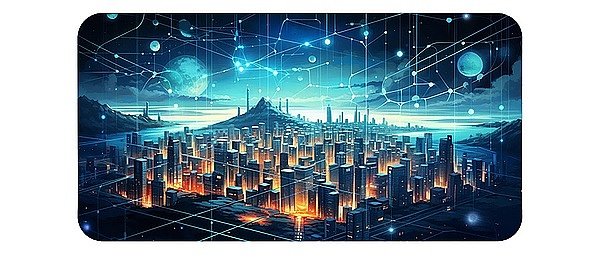Since the launch of Ethereum, countless project teams have tried to build a crypto-ecological "WeChat", "Baidu", "Google", "Youtube" on the blockchain...
This attempt began as early as the ICO wave in 2017 and has continued to this day. Apart from other things, there are a lot of similar applications on the Lens protocol today.
However, unfortunately, none of these applications can really stand out.
This is also a question that has troubled me for a long time.
Are decentralized, permissionless applications really not that attractive?
Are people really willing to sacrifice their phones, their identities, and even expose their faces through video and photos to register for these applications?
The reason I can think of later is:
WeChat has accumulated too many of our social relationships, and it is difficult for us to break away from these relationships and try a new application simply for the pursuit of "privacy" and "freedom".
There is too much valuable information in Youtube. It is difficult for us to break away from this information source and create an information library that matches it simply for the pursuit of "privacy" and "freedom".
......
It is precisely because of these long-accumulated information resources that we cannot get rid of the current information circle and network, and we have to continue to sell our identity and sacrifice our privacy.
However, will this kind of decentralized, permissionless application really sink and languish? Will it always be tepid?
I always think that this is a bit wrong, but I can't find a strong explanation.
However, when I read the article the day before yesterday (link see the end of the article), I read the following paragraph:
"If we want AI Agents to "autonomously perform tasks", then they must have an "autonomous identity" and exist as an independent individual. So the question is, if it is an independent individual, then where is the ID of this AI Agent registered? How does it manage its own finances? ”
“In Web2, this is a headache: it is highly unlikely that an independent ID will be registered in the next few years; no ID means that you cannot open a bank account. If the ID and bank account still use the "owner", this AI Agent cannot actually be called an "independent identity." ”

“From the above examples, it can be seen that AI Agent must be an independent individual with an independent financial account and can "autonomously perform tasks" to have greater room for development. Otherwise, it will remain in the bot stage. ”
“It is almost impossible for the Web2 world to register an ID and open a bank account for an AI Agent in a short period of time. Fortunately, we have the Crypto chain world. In the Crypto world, it is very natural to register an onchain identity and an onchain wallet for an AI Agent. ”
After reading this passage, I thought of the possible application scenarios of the decentralized and permissionless applications mentioned above--------their real and largest users are not humans, but AI agents.
I have shared in previous articles: I think crypto assets are more like AI agents. Because AI agents need to realize online payments, they can't use ID cards to open bank accounts like humans, and they can't verify their social identities like humans, so decentralized and permissionless crypto assets are just right for them.
But at that time, I didn't extend this idea to a wider range of decentralized applications, especially the decentralized and permissionless content applications I mentioned above.
Now if I sort out this idea again, many problems will be clear.
In the future, AI agents will not only be able to realize mutual payments and transfers through encrypted assets, but also through these decentralized
Of course, will the forms of those applications be like the so-called "decentralized Youtube" and "decentralized WeChat" we see today?
It is possible, but not necessarily.
Because these applications are currently designed according to our human habits. We still don't know how real AI agents will communicate more efficiently and smoothly.
No matter what the form of those applications may be, I believe that the applications that realize information sharing and intercommunication between AI agents in the future must be based on blockchain and do not require permission.
Therefore, when AI agents explode, the next explosion of many tracks must be a wide range of applications based on blockchain public chains: they are decentralized, censorship-resistant, and do not require permission.
 JinseFinance
JinseFinance
 JinseFinance
JinseFinance JinseFinance
JinseFinance JinseFinance
JinseFinance JinseFinance
JinseFinance JinseFinance
JinseFinance JinseFinance
JinseFinance JinseFinance
JinseFinance Future
Future Bitcoinist
Bitcoinist Cointelegraph
Cointelegraph